Six Writers Tell All About Covers and Blurbs
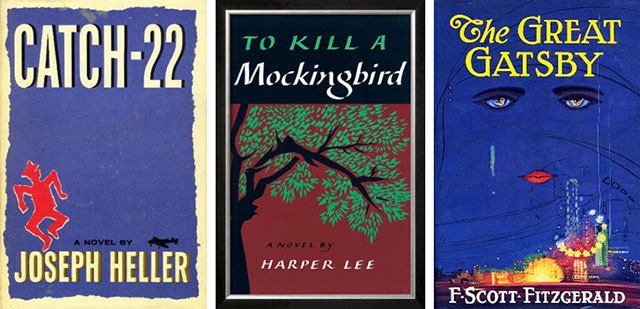
Writers by definition spend a lot of time on the inside of books, which is why what happens on the outside — namely, cover art and blurbs — can feel precarious and daunting. Often these elements are beyond an author’s control or expertise, which can be painful to admit, particularly when the “expertise” of graphic designers and marketers seems so subjective or at odds with an author’s “vision” for a book.
To get some advice on navigating these issues, we asked a handful of writers — including Kate Christensen, Bennett Madison, Stefanie Pintoff, Mark Jude Poirier and Tom Scocca — who have been through the process these questions:
- How important are covers in terms of selling a book?
- Have your publishers asked you for your opinion or “input” on your covers, and to what extent do you think they listened? Did you ever meet with the designer? How important was “marketing” in making decisions about the cover of your book(s)?
- Did you ever receive a cover that made you unhappy and if so, what did you do about it? Did you ultimately end up with a cover that made you happier?
- How important are blurbs, particularly for a first-time author?
- How did you go about getting your blurbs? Did your agent or editor help, or did you rely more on personal connections?
- Have you ever offered someone else a blurb?
Let’s get started!
Kate Christensen
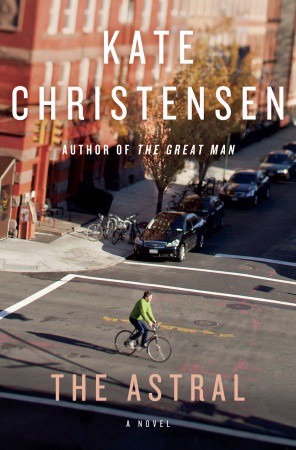
I’m much more interested in words than images. I look at covers, of course, but am never swayed one way or the other by them. A great one can pique my interest, but if a cover is mediocre or even bad, it wouldn’t prevent me from reading the flap copy, the first sentences and the back cover.
I’ve been contractually permitted to weigh in with an opinion on all of my covers, paperback and hardcover; sometimes my opinion causes changes, sometimes not. My editor has the final say; he and I have disagreed, and he always wins. I’ve never met with a designer or contributed to the concept of a cover, except for my most recent book, The Astral, whose title refers to an actual apartment building in Greenpoint, Brooklyn. I suggested using a photo of the building, but I’m sure they could have come up with that on their own.
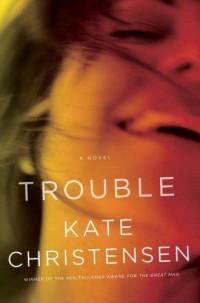
The cover for the hardback of Trouble made me unhappy, but no one would budge on it, so there it stayed. My mother thought it was a picture of me; I thought it was flat-out weird. I still dislike it.
I honestly have no idea how important blurbs are for the general reading public. Knowing what I know, whenever I see a blurb, I immediately assume the writer is friends with that person or has studied with them or babysat their kids — or slept with them or is blackmailing them or has a gun to their head. In other words, I give blurbs no credence whatsoever.
Two close friends blurbed my first novel. I am forever in their debt, and I found the whole process a bit humiliating. No strangers were willing to blurb me on the strength of the book itself, and my editor asked many people, far and wide. The whole thing made me feel jaundiced and annoyed.
My later books were beautifully blurbed by a several generous fellow writers I barely knew — people I now adore and feel indebted to, although I still barely know them.
I happily, freely offer and write blurbs for everyone I know or sort of know or who know people I know, and even people I don’t know if I like their books, which, come to think of it, disproves my assumption that all blurbs are personal. I write blurbs for books I like and people I like.
I wish I had known that publishing a novel is a crapshoot from start to finish. If you’re lucky enough to get a book into print, you may not be lucky enough to be blurbed, reviewed or read. If no one blurbs you, it just means you don’t know any writers more successful than you are. Don’t take it personally. That’s the best advice for a writer, the key to an even-keel sanity with regard to the whole business — don’t take anything personally.
Kate Christensen’s new novel, The Astral, will be published on June 14.
Bennett Madison
I think covers literally are the only thing that matters. Maybe store placement and co-op also matters but I have certainly never gotten co-op so I wouldn’t know.
Generally, your publisher asks what you think after it’s finished and too late to actually change much. Then you can ask for little adjustments. “Marketing” of course is very important in the same abstract way that astrology is very important. By the way, I know a person who has it written into her contracts that her book can’t be released while Mercury is in retrograde. Which at first seems brilliant, but then it makes me think that maybe that means all the lead-up stuff is during Mercury retrograde which might even be worse so I guess there’s nothing you can do.
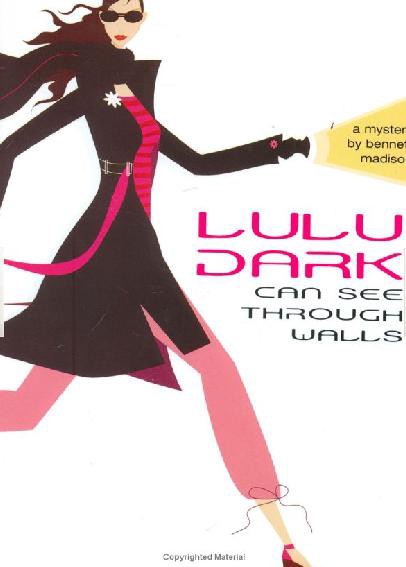
I absolutely hated the cover of my first book. I complained a little and they changed it enough to make me hate it so much more! So the moral of the story there is, no matter how bad it is it can always be made worse with hot-pink “I Dream of Jeannie” harem pants.
I also had a cover that I loved which had to be changed at the very last minute because some “very important people” didn’t like it. As a result the book got delayed by a year and was published with a new cover that I guess I liked okay but seems in retrospect like maybe it didn’t represent the book well. Of course, because of the haphazard way publishing works, the original cover that was never actually produced is still all over the Internet, etc. And the new cover didn’t sell at all. The moral of this story is, who cares?
I have no idea about blurbs. It seems like they are probably not that important. Maybe it would matter if you got blurbed by someone really giant like JK Rowling or Michelle Obama but who knows. I suspect they matter more for reviews and awards and that kind of thing than they do for sales to actual consumers. (Assuming actual consumers exist.)
A lot of times I think blurbs are just for the writer’s ego, ’cause like, you get to ask people you admire to blurb your stuff and then if they do it you can feel all pleased with yourself, which is nice when it happens.
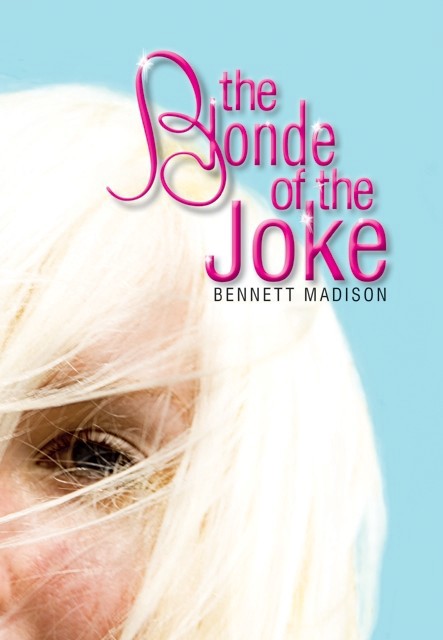
I didn’t get blurbs for my first couple of books. I don’t know why; no one ever mentioned it to me and I had no idea what I was doing. I guess since my first few books are, like, light mysteries no one thought it was necessary. But I mean, we could have gotten blurbs from other people who wrote chick lit mystery-type stuff? I have no idea why we didn’t. I have a feeling it had something to do with someone being a total idiot. Perhaps me!
For my most recent book, which I did get blurbs for, I went about it in a very haphazard way. My editor and I never made a big list or had a big conversation about it or anything. I just sent out a few emails. A few people turned me down with very good excuses, which didn’t bother me. A few people never responded to my very nice e-mail requests, which those people if you’re reading this, yes, I will secretly hold that against you forever.
I know there’s supposed to be this whole very strict etiquette about asking for blurbs, but no one can actually agree on what that etiquette is, so it’s not very useful. It seems like certain people want the request delivered on a velvet pillow on top of a silver platter by an emissary from an outside accounting firm or whatever. Get over yourself. If you have a personal relationship with someone you should be able to ask for a blurb under the condition that you accept a “no” very gracefully.
My editor asked a few people I didn’t know personally on my behalf also, which some of those people said yes and I guess some of them didn’t. I probably should have been on my editor’s case about it more, because there were a few people I was really hoping for and I don’t know what happened there and I never really asked.
People have asked me to blurb, which is always very shocking because it seems like you should only try to get blurbs from people who are at least marginally well-known, which I’m not. Anyway, it’s very flattering and does indeed make me feel like a “real writer.” And yes, I have given blurbs to those people who have asked. And yes, I loved their books. But anyone who claims that people don’t blurb books they hate all the time for various reasons of politics is a huge liar.
Bennett Madison is the author of several books, including The Blonde of the Joke.
Stefanie Pintoff
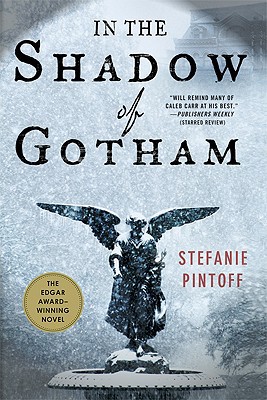
Three aspects of a book make the greatest first impression on potential readers. The opening sentence. The title. And, of course, the cover. If the cover art does its job well, it will portray the tone and genre of the book accurately — and help it stand out from its competition on the bookshelf. Although one can’t help but wonder whether the meteoric rise of the e-book will diminish the importance of the cover in a reader’s decision to “pick up a book” and explore its first few pages.
As writers, we can have very different levels of involvement in the process. Most of us don’t have “ cover approval” in our contracts (though huge bestselling authors may get that eventually). My own contract calls for “cover consulting,” which is more typical. Even so, what that means can vary from house to house, and from book to book. Ideally, we’ll feel part of an open exchange of ideas — and end up with a cover that reflects our shared vision of the novel.
I was fortunate with the cover art for my first book, a historical mystery set in early 1900s NYC. Though I wasn’t involved at the level of design or marketing meetings, my publisher made me feel part of the process when my editor and I discussed issues of mood, color and theme. I passed along sample photographs that had the right tone. And when I first saw cover artist David Rotstein’s product, I felt it was absolutely perfect. He had taken a central landmark near the lake in Central Park, the Angel of the Waters, and transformed it with color and background to suit my novel. That first cover transformed even the way I felt about my title. I’d been ambivalent about In the Shadow of Gotham and wouldn’t have been surprised had marketing told me to find something new. But the moment I saw the title emblazoned on the cover, in just the right font, I loved it.
In a series, continuity is important. Once the theme for my series was set, additional covers followed along the same lines, varying only in color choice and specific NYC settings. I love my covers, and think they also work from a marketing perspective. And covers are very much the domain of marketing. They target major buyers as much as end-readers. It’s a fact that buyers for the chain stores will order more copies of a book they find visually appealing, so their opinion counts, even to the extent that publishers will entirely change a book’s cover if an influential buyer doesn’t like it.
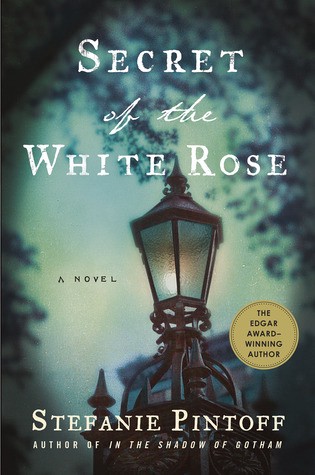
Turning to blurbs, I believe they can be very helpful to debut novels, for which of course there are no reviews in place. The best blurbs come from an author writing within the same genre, since they will take advantage of a shared audience. For example, for a thriller debut, a blurb from Michael Connelly or Lee Child is an instant attention-getter and lends an air of credibility to the book. Authors can be very busy, so connections matter (sharing an agent or editor for example). In my case, my editor was responsible for my early blurbs — and I was grateful.
There are so many people who have been instrumental to my success as a writer. I know that without their advice and support, my career would have been very different. I regularly give blurbs to other authors. Especially, debut mystery writers. Of course, I benefit as well, since it’s another way of getting my own name in front of a potential audience. And, it provides me a legitimate excuse to put down my laptop and pursue my favorite hobby — sitting down with a good book.
Stefanie Pintoff is an Edgar award-winning mystery novelist whose work has also won the Washington Irving Book Prize and earned nominations for the Anthony, Macavity and Agatha awards.
Mark Jude Poirier
I think covers are extremely important. The cover of your first book is like your wedding dress if you’re a woman: You want it to represent who you are, but you want it to make you look much better than you normally do. And you only get one first book. I can’t think of an apt metaphor for men. Your first book cover is like… I don’t know, your first car? This is a futile exercise in gender normativity, anyway, so I’ll move on.
You should definitely have input into the cover’s design, and your publisher should facilitate and encourage this input. If your publisher is being cagey, get your agent involved. For me, my publishers (the Crown division of Random House and the Miramax division of Hyperion) sent me several mock-ups from which to choose. I was with Crown for my first book, and they allowed me to search for an image I thought might be appropriate for my book’s jacket. They didn’t ultimately use that image, but they used one by the same photographer that I actually preferred to the one I had found.

My experiences with Miramax were different. I loved the cover they chose for Goats for which they had asked my input. I also loved the cover they chose for Unsung Heroes of American Industry. Again, I had some input. The cover they chose for Modern Ranch Living, however, sucked and continues to suck today. They had sent me a bunch of mock-ups, some of them very cool, very compelling. Some of them were inappropriate. The novel takes place in Tucson, Arizona and one of their mock-ups featured a photo of a strange mammal that only lives in the deserts of Australia or Africa or somewhere that isn’t Arizona. I told them which mock-ups I liked and why, but they ultimately chose a bland and way-too-literal photograph of a curvy-road-ahead highway sign in the desert. I’m not sure why this happened, but I have a theory. First off, my editor left Miramax Books before the novel was released, just before the cover was chosen. She had been much more than an editor — she was my publicist and friend, and she had made sure that my opinions were considered in the creation of my covers. And I trusted her. When she moved on, my main contact became my publicist, who rarely returned calls or emails and ended up quitting Miramax Books in the middle of my book tour. I imagine he just lost the mock-ups and didn’t bother to tell anyone until it was too late, and a clueless 19-year-old NYU intern chose my cover on her first day in the chaotic offices. And now I’m left with this crappy cover for my fourth — and I believe my best — book. Cry me a river.
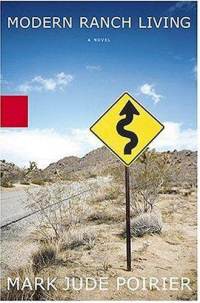
I certainly wouldn’t pick up Modern Ranch Living in the bookstore. The bland cover screams bland novel. Actually, it doesn’t scream anything. It mumbles. I have bought books based on their covers alone, and about 85 percent of the time, I’ve found that an interesting and compelling cover means an interesting and compelling read. Take the hardback edition of Gary Lutz’s Stories in the Worst Way, for instance. The Knopf book features a stark photograph of three packets of Chinese food sauces. I remember seeing this book in Prairie Lights in Iowa City, picking it up because of its cover, and shelling out the twenty-one dollars for it — which was a lot of money for a graduate student in 1996. I had no idea who Gary Lutz was. There were no blurbs on the book, just this intriguing and weird and stark cover, which was designed by Archie Ferguson. Lutz’s stories were as intriguing and weird and stark as the cover. Genius.
Bloomsbury publishes my books in the UK, and while I’ve had no real input in cover selection, those people across the Atlantic really know how to churn out great design. They’ve come up with eight covers for my four books, none of which I’ve objected to, and all of which I’ve liked.
I offered cover ideas to people at Simon and Schuster for The Worst Years of Your Life, an anthology I edited, and I’m grateful they went in another direction. The cover they chose features a diagram of a frog dissection that looks as if it were made on a ’70s ditto machine. Created by Catherine Casalino, the cover went on to win design awards. While I approved the cover and approved the covers from Bloomsbury, it took me a while to believe that sometimes book-jacket designers, people who actually get paid to design book jackets, people who actually have a lot of experience designing book jackets, often know better than I. Because of my sour experience with Modern Ranch Living, I’m a little touchy, but I have come to let the experts do their jobs.
Just above, I mentioned that I bought Stories in the Worst Way, a book with no blurbs, but I do think blurbs are important. I read blurbs in bookstores. A blurb from an author I admire might seduce me into buying the book. A blurb from an author whose work I dislike can make me leave the book on the shelf. A blurb from an author I actually know and dislike on a personal level — usually based on their abhorrent behavior in graduate school — means I will turn the book backward on the shelf in the bookstore or hide it under a stack of Sarah Palin’s Going Rogue.
Asking for blurbs is humiliating and horrible. If your editor and or publicist can do it for you, you’re lucky. If left on your own, ask writer friends or professors. Because I know how awkward it is to ask for blurbs, this is what I usually say when I’m asked to blurb someone’s book: “I’d be happy to blurb your book, but are you sure you don’t want to ask someone with a fan base that isn’t limited to his mother’s book club?” If you ask someone for a blurb, and they write you a decent one, use it! I once was asked to write a blurb for a friend so I diligently reread his novel — I had read earlier drafts. He didn’t use my blurb, which was a good blurb, damn it! I would have understood if my blurb had been knocked off the jacket by blurbs from Philip Roth and Salman Rushdie and Annie Proulx, but no; my blurb was knocked off by blurbs from writers just as obscure as I am. Feelings check: hurt.
Choosing a cover and gathering blurbs for your first book should be a fun and exciting time, but chances are someone along the way will let you down. Because publishing your first book usually takes quite a while and a lot of hard work, it’s easy to think that you don’t have control over anything that happens. You do. You just have to ask, and maybe be a little pushier than you’re comfortable being.
Mark Jude Poirier is the author of four books of fiction and several screenplays. You can order the UK versions of his books that have much better covers than the American versions here.
Tom Scocca
I assume covers are very important. This might just be a superstition or a way of hedging — sure, there must be some cause-and-effect relationship between some feature of the book and whether or not people buy it, right? But I’m a primitive reader and I judge books by their covers all the time.
My relationship with the cover of my own book is unusual and might be unprecedented. I have not heard from any authors who have had a similar experience. Here is what happened: the publisher sent me a mock-up of the cover for Beijing Welcomes You, and it was perfect. I mean, it was exactly appropriate for the book I had written. No, more than that: if I’m remembering the timeline right, the cover design unmistakably echoed the structure of the book’s epilogue — which I had not even turned in yet. The editor tells me it was done by Riverhead’s Helen Yentus and Alex Merto. I had no input whatsoever, and I could not be happier with the result.

I have no idea whether blurbs influence readers or not. My publisher believes they are part of the process, and I choose to believe what my publisher tells me. Thinking about blurbs activates the part of my monkey brain that’s wired up for seeing the shadow of an eagle while crossing open ground: EXPOSURE TO DEATH-RISK! FLEE! I have been led to understand that this is the normal mindset of writers in blurb season; at least, my publisher was willing to pretend that the minutes-long wincing silences that punctuated our meeting about blurbs were perfectly ordinary behavior.
Even as writers go, I think, I am terrible at asking people for things. Also at networking with other writers. I have gotten two blurbs so far on my own, by which I mean I sort of talked to the only two people I know who are famous writers, and I mentioned that the book was written, and they volunteered to blurb it, at which point I got Riverhead to send each one a galley and a note formally making the awful request. My agent has shaken one or two more loose from somewhere, I gather. And the publisher had worked up a little list of other people to ask. Maybe some of them have now read the galley and liked it, and they’ll want to endorse the book, because they want to inspire other people to share the experience. That is how it works, isn’t it?
All I really remember from the whole conversation at Riverhead about getting blurbs is an exchange that went something like this:
PUBLISHER: What about [BRAND-NAME BESTSELLING AUTHOR]?
ME: [Wince.]
PUBLISHER: Uh-oh, did you write something about him?
ME: [Nod.]
PUBLISHER: OK, not him.
ME: Maybe he’ll be a grown-up about that!
PUBLISHER: He won’t.
I probably failed to think of a half dozen people who would have been willing and able to write a blurb. If my own mother were Oprah Winfrey, I’d have skipped her and been like, “Well, who says she’d necessarily like this book?” Here’s how dysfunctional my relationship with self-promotion is: when I was in college, my roommate and I started a magazine. Someone at some point was like, “You guys” — I don’t even think it was that direct, more like “These guys” — “These guys are just doing this to put it on their résumés.” And so two years later, when I was writing my résumé, I left the magazine off, just because, screw you.
So, anyway, if you are reading this, and you like my writing, and you are a published author, I would be honored and delighted if you would blurb my book, and the only reason I didn’t ask you was that I didn’t want to be annoying. Seriously, there is still time. Tscocca at gmail dot com. I’ll send you a galley.
(I had to get up and walk around before I could bring myself to write that paragraph.)
I’ve never offered anyone else a blurb, because right now, my blurbs would be worthless. That’s not neurotic modesty; it’s how the currency works. Until your own book has been published, you don’t exist.
Tom Scocca writes the “Scocca on Slate” blog. His first book, Beijing Welcomes You is due out in August.
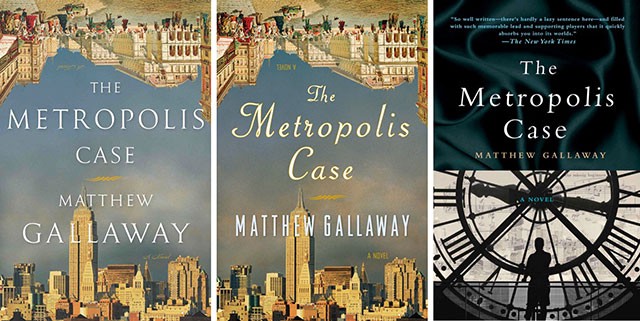
Matthew Gallaway
I remember feeling a little sick when my agent told me in no uncertain terms that the cover is “the most important part” of a book, and I felt even sicker when he ended our discussion about blurbs by declaring that the process was “war.”
As for my cover, I was asked for absolutely no input, but as it turned out, I genuinely loved what my editor sent to me. The only changes that were subsequently made — after consulting with my agent — was to change the font. Although I never would have thought of it myself, I think it was an excellent idea, and helped to make the cover more “readable.” (You can judge for yourself.) I was equally excited recently to get the paperback version, which also arrived without any input from yours truly. Short version: I consider myself very lucky in terms of covers.
As for blurbs, I think it’s a horrible, ugly word, and I try not to use it in polite conversation, even going so far as to substitute the pompous “endorsement.” (Much the way I feel about using “gig” in the context of indie rock, which yeah, no.) Try saying “blurb” a few times without feeling humiliated and embarrassed: there, you see what I mean? Unfortunately, I think blurbs are important, less from a consumer-perspective than in terms of building “buzz” within a publisher, specifically helping to get the marketing and sales “on board.” That said, getting the blurbs almost gave me a nervous breakdown, because I didn’t know any “real writers.” For the first time, I felt sorry not to have an MFA (and the connections to potential blurbers it seems to bring) and even less logically about getting a C+ in my creative-writing class in my sophomore year of college, as a result of watching literally 99 percent of the network coverage of the 1988 Winter Olympics, which wouldn’t have been so bad except I somehow managed not to “get rid of” my television until May, at which point I was pretty much a zombie, academically speaking. I also regretted writing some nasty blog reviews about books written by prominent nonheterosexual novelists ___ and ___, which leads to my one piece of advice to unpublished authors on this subject: don’t waste time tearing down books you hate; focus on what you love, because it’s actually pretty difficult to scrub old blog posts from the Internet, as I learned the hard way lol. The last thing the world needs is another asshole critic, and if the time comes when you’re asking around for blurbs, trust me, you’ll regret being that asshole.
I did send out hand-written requests to perhaps 10,000–15,000 of my favorite authors, including a few gay ones, one of whom was kind enough to write back saying that he “never” blurbs books, even those written by nonheterosexual debut novelists, a “solidarity card” I had been very naively hoping to play. (Note: just because gay writers have generally been ignored and abused and suffocated for the past century doesn’t mean that if you’re a gay writer you’ll be welcomed with a trumpet fanfare and red carpet through the gilded gates of the “literary community,” gay or otherwise; if anything you’ll be viewed MORE harshly by gay writers for reasons that probably are more deserving of sympathy than scorn, although as mentioned above I regret to say I’ve not always been able to resist the latter impulse, although I like to think I’m much better than I used to be.) As it turned out, the blurbs I received came either by way of connections to my agent or editor, or — for the two I procured myself — fellow denizens of the blogosphere. I will say that there was no connection I did not attempt to exploit, no matter how remote, and I still feel a bit “whored-out” from the whole experience. (Which is no reason not to do it; just brace yourself, is what I’m saying.) Happily, in every case the “endorsements” came from writers whose work I greatly admired and had written kind things about on my blog (see note above regarding not being an a-hole.)
Matthew Gallaway is the author of The Metropolis Case. He would like to thank Maud Newton, Ed Sien, and Mark Longaker for their help in curating this edition of Publishing School. He promises to “blurb the shit” out of anyone who asks nicely.
